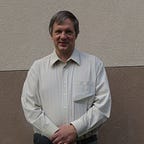Fred-Rick
I had to do a little fact checking on your last post. A few things did not mesh with my understanding of history.
Here is an excerpt from Wikipedia about the Slovak government structure:
-------
The Slovak head of state and the formal head of the executive is the president (currently Zuzana Čaputová, the first female president), though with very limited powers. The president is elected by direct, popular vote under the two-round system for a five-year term. Most executive power lies with the head of government, the prime minister (currently Igor Matovič), who is usually the leader of the winning party and who needs to form a majority coalition in the parliament. The prime minister is appointed by the president. The remainder of the cabinet is appointed by the president on the recommendation of the prime minister.
Slovakia's highest legislative body is the 150-seat unicameral National Council of the Slovak Republic (Národná rada Slovenskej republiky). Delegates are elected for a four-year term on the basis of proportional representation.
----
To me, it is irrelevant whether the president is elected in a winner-take-all-contest. The second round of voting ensures a majority--and the president has no real powers anyways.
The formalities between the president and prime minister are traditions the president rubber stamps the prime minister's wishes. Similar to the second house in your Dutch parliament--and a few other places.
When I was in Slovakia, the moderate parties were careful to construct their candidate lists such and the party had representatives across the country. In this way, all regions have reasonable representation in parliament. Not constitutionally driven, but as an appeal to the voters that the party is trying hard to be fair. A party that had all its top candidates from Bratislava was not likely win many seats. Sometimes traditions are just as effective as legalities.
So there was no electoral districts when I was living in Slovakia. According to the Wikipedia article, that has not changed. But maybe you know more than me.
---------
I also wonder at your obsession with winner-take-all contests. Canada is one such country, yet we have produced a reasonable social democracy.
And many times in a parliaments, new laws are written with a substantial minority opposing. This opposition could also blame a winner-take-approach as the reason for their legislative failure.
Nations do need to move forward, and sometimes a majority vote is what it takes to move things forward. Attaining 100% consensus in any western democracy is a naive assumption. So we could argue that winner-takes-all is an inherent feature of any parliament--even in PR systems.
But the TDG will be much better at attaining consensus as elected representatives are not beholden to any preconceived party contraints that stifle a free discussion.
-----
One similarity between FPTP and PR is both form coalitions. In PR, the coalitions are formed after the election. In FPTP, the coalitions are formed before the elections.
If Canada ever embraces RP, the three mainstream parties would likely break into two sections each. For example, the NDP would break into a whacky socialist faction and a more practical socialist faction. Both factions could earn seats in PR system by themselves. They would be elected fully under their whacky/practical socialist ideals, not having to consider the other side. Then they would form coalitions, most likely with each other on most issues.
We see the same thing with American Democrats. If this party ever splits up into its four or five ideological parts with a PR, it would likely unite back together under a PR coalition.
I really don't see a lot of improvement in governance just because of how the coalitions form before or after the election.
In the end, it is the common citizen that gives whatever version of democracy its legitimacy. The political junkies, like you and I, can debate forever and will never come to a resolution.
But I think many common citizens would be just as happy voting for one their neighbors into governance than for a party.
